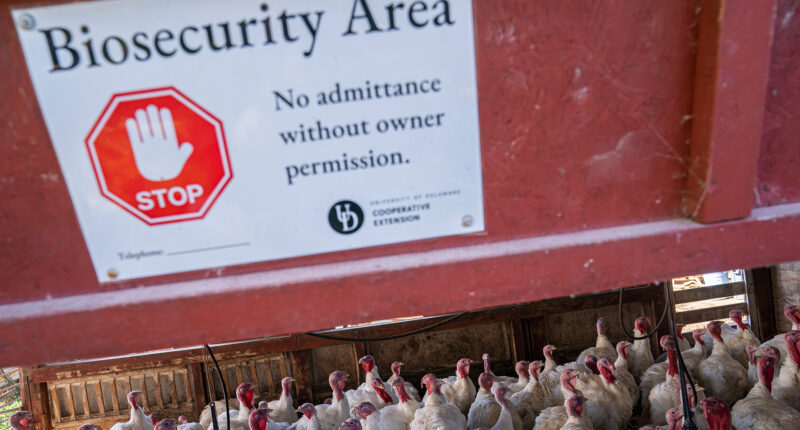FEARS about the bird flu are growing due to a pet food recall after a housecat died from eating a product that tested positive for the virus.
An Oregon-based pet food company issued a warning about its raw frozen cat food in 12 states after the pet’s death.


Northwest Naturals has stated that it is pulling back a specific batch of its two-pound Feline Turkey Recipe food from the market due to a positive test for the virus. The affected product is being recalled.
This product is distributed in multiple states including Arizona, California, Colorado, Florida, Georgia, Illinois, Maryland, Michigan, Minnesota, Pennsylvania, Rhode Island, and Wisconsin.
The individuals who owned the cat that passed away are currently under close observation for signs of the bird flu strain H5N1. However, there have not been any reported cases of humans falling ill from consuming the affected pet food thus far.
“We are confident that this cat contracted H5N1 by eating the Northwest Naturals raw and frozen pet food,” Oregon Department of Agriculture State Veterinarian Dr. Ryan Scholz said in a news release.
“This cat was strictly an indoor cat; it was not exposed to the virus in its environment, and results from the genome sequencing confirmed that the virus recovered from the raw pet food and infected cat were exact matches to each other.”
Northwest Naturals confirmed to The U.S. Sun that no other sick pets have been reported due to the infected product.
The recalled pet food is packaged in two-pound plastic bags that have expiration dates of May 21, 2026, and June 23, 2025.
Officials say customers who bought the recalled food should throw it away immediately and get a refund.
Bird flu is widespread in wild birds across the globe and can cause outbreaks on poultry and dairy farms.
Oregon has had one confirmed human case of the bird flu this year, but it was spread by poultry farms and culling operations, according to the Centers for Disease Control and Prevention.
The person fully recovered after being mildly ill, the Oregon Health Authority confirmed last month.
More than 60 people across eight states have been infected with the bird flu this year, according to the CDC.
Just last week, a man in Louisiana was hospitalized with the first severe case of H5N1.
The man, who is over 65 years old, likely caught the virus from sick birds in his backyard, the CDC said in a statement.
What to know about the bird flu
The H5N1 strain of the Highly Pathogenic Avian Influenza virus, also known as the bird flu, infected dozens of humans in 2024.
As of December 26, 2024, there have been 65 confirmed total reports of humans with the bird flu.
People have been exposed to the virus in the following states:
- California
- Colorado
- Iowa
- Louisiana
- Michigan
- Missouri
- Oregon
- Texas
- Washington Wisconsin
39 people were exposed to the virus via cattle, while 23 exposures were due to poultry farms and culling operations.
One person was exposed to the virus due to his backyard flock, while the sources of two other cases were unknown.
Source: CDC
This is the first time a person contracted bird flu from an animal in their backyard, authorities said.
Backyard flocks can be infected by infected droppings from wild birds flying over them.
LOW RISK TO HUMANS
However, the CDC maintained that the risk to humans from the virus is low, despite fears of a bird flu pandemic.
“While the current public health risk is low, CDC is watching the situation carefully and working with states to monitor people with animal exposures,” authorities said on their website.
To avoid the spread of disease, the CDC has warned people to avoid consuming raw meat or dairy products.
Plus, it’s always a good idea to avoid sick or dead animals.
Wash your hands after handling raw animal products or being in contact with animals.
The Oregon Department of Agriculture told The U.S. Sun that pet owners should look out for symptoms of bird flu in their pets if they’ve consumed raw milk, wild birds, or raw meat products.
Pets can also exhibit neurological signs, such as seizures, blindness, or other symptoms of bird flu, that cannot be clearly explained by another disease.
If you come across a potential case of the virus in an animal, isolate the animal immediately, put on protective gear, and contact health officials.


















